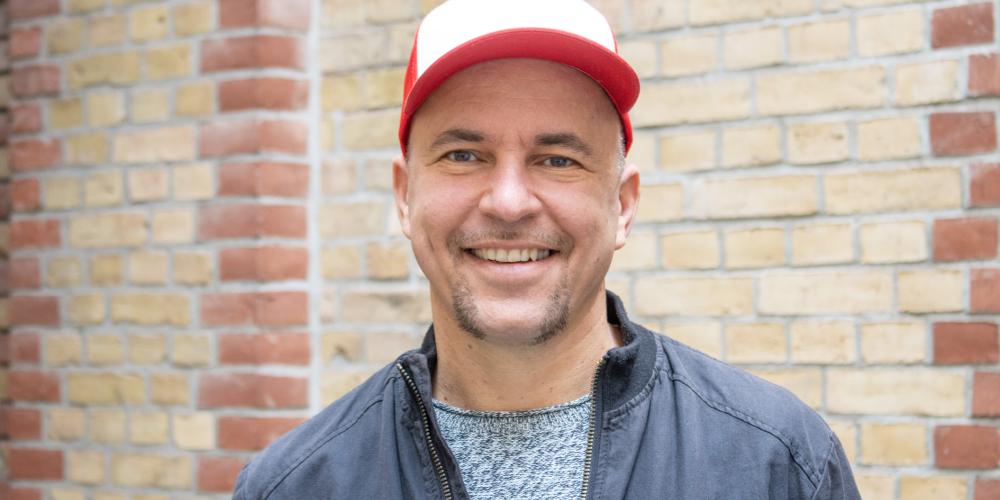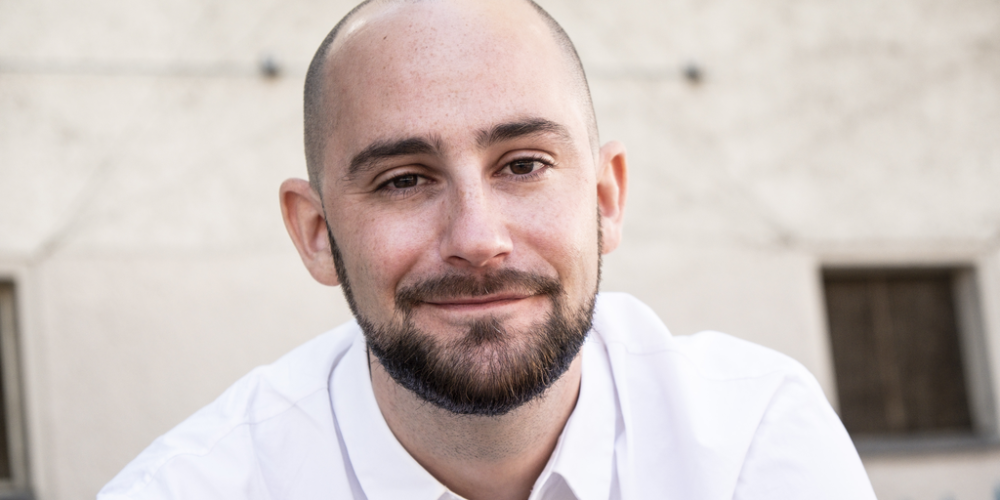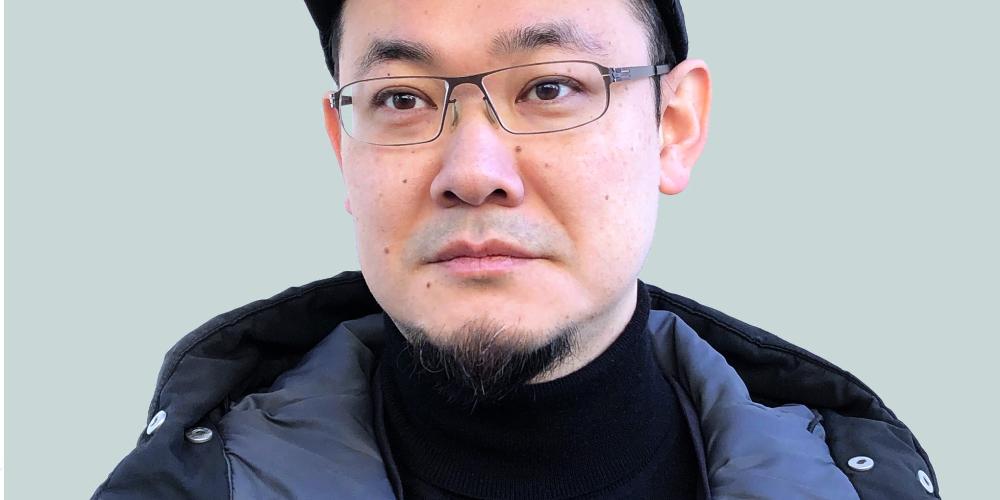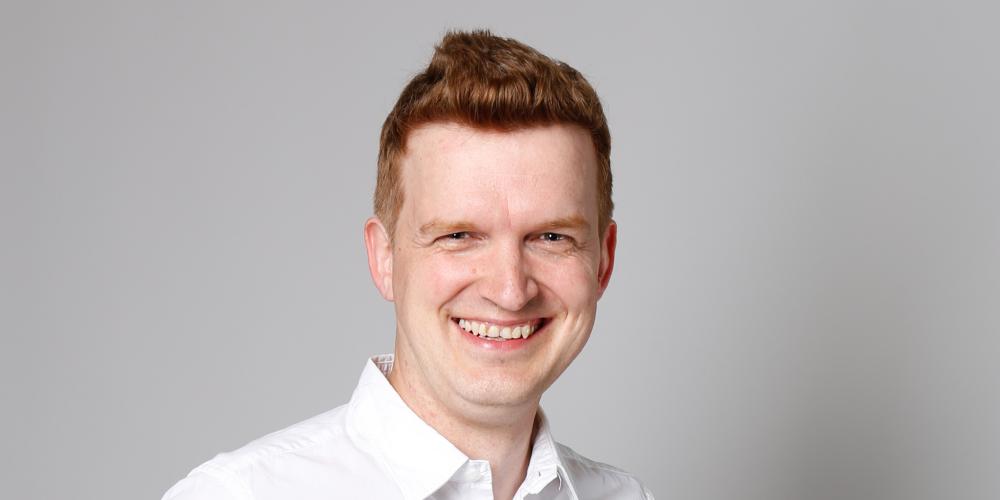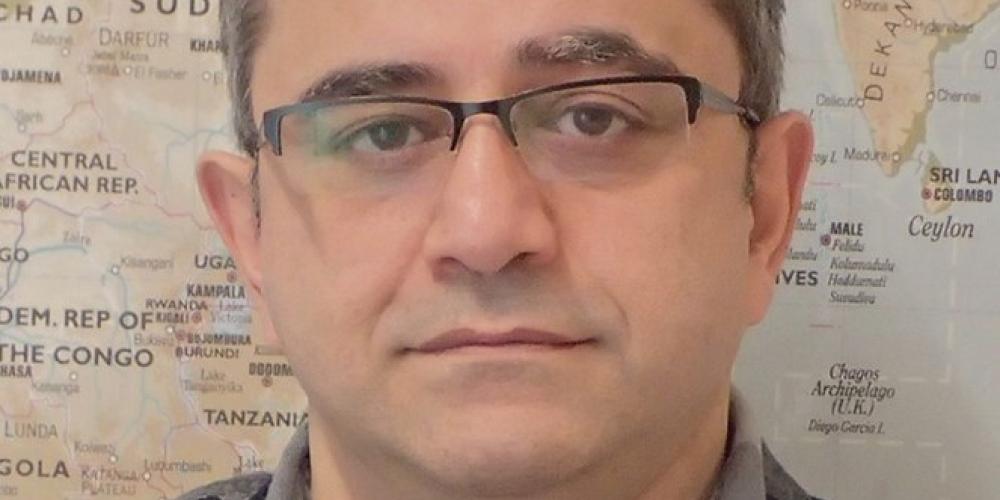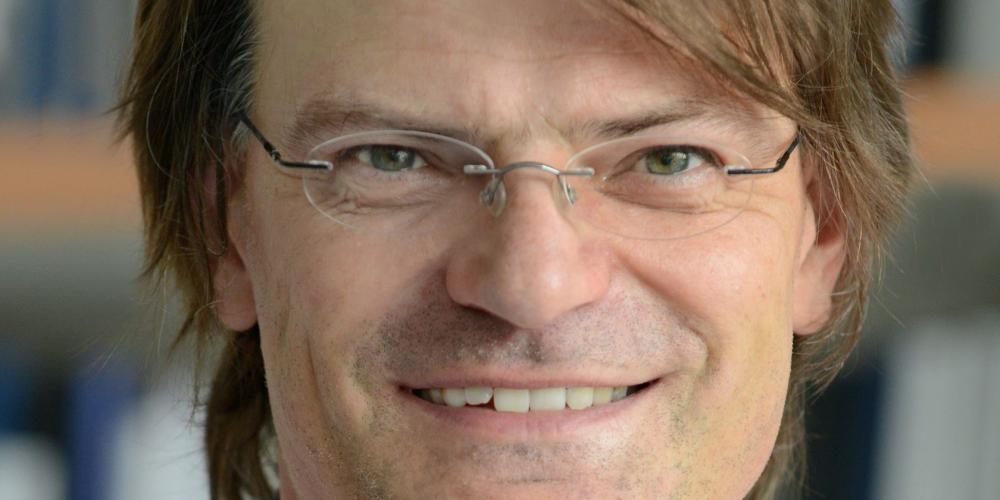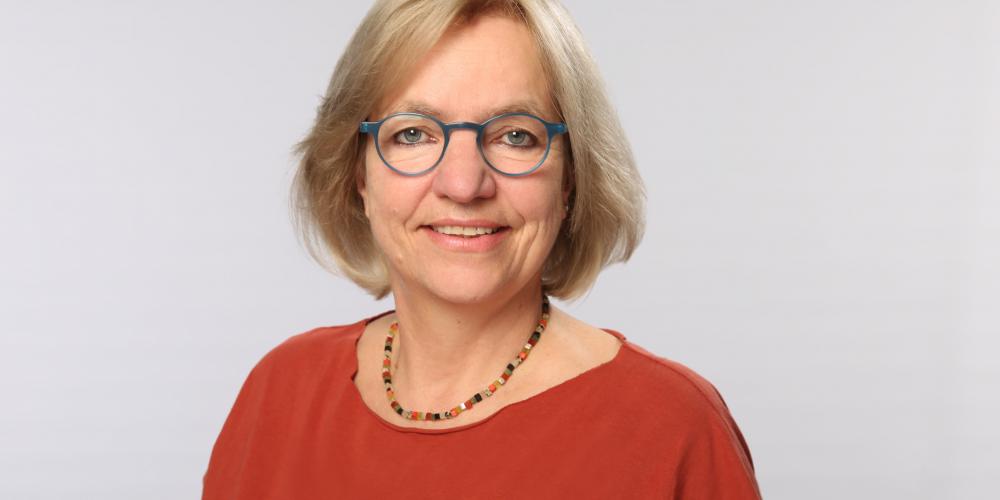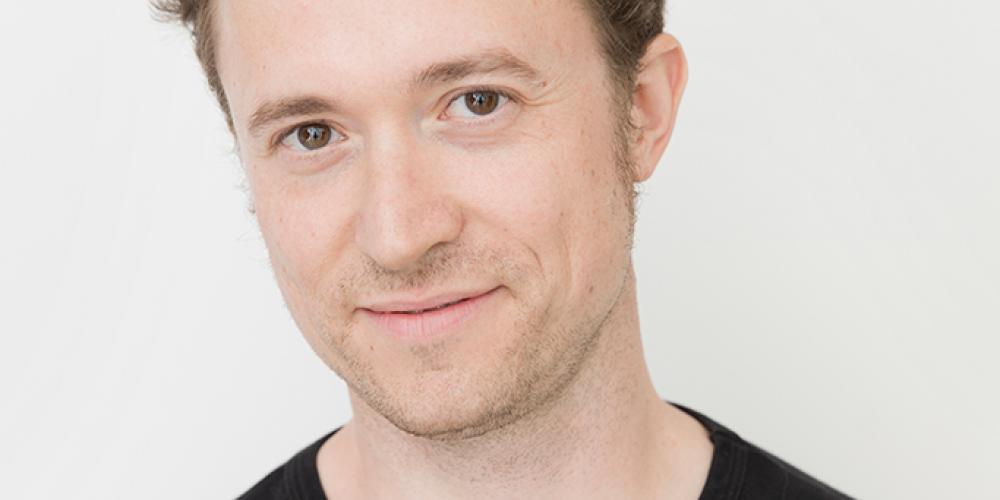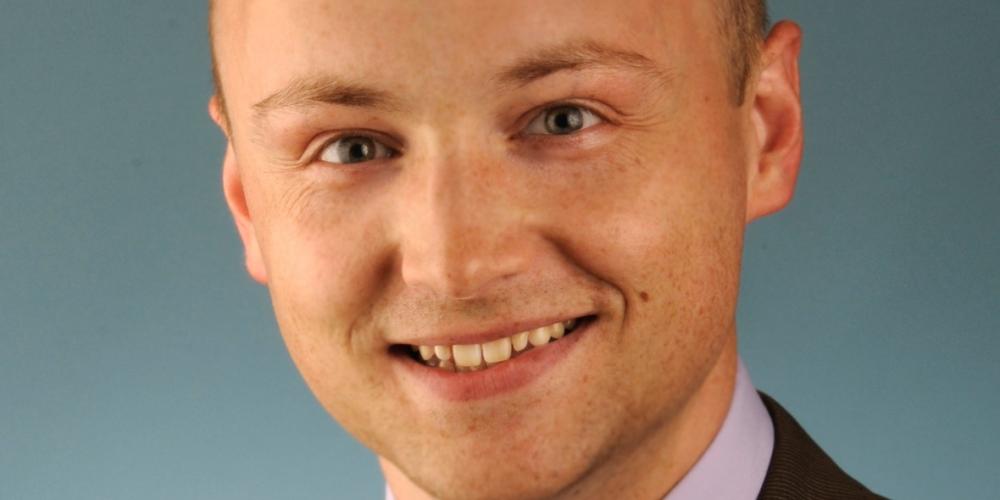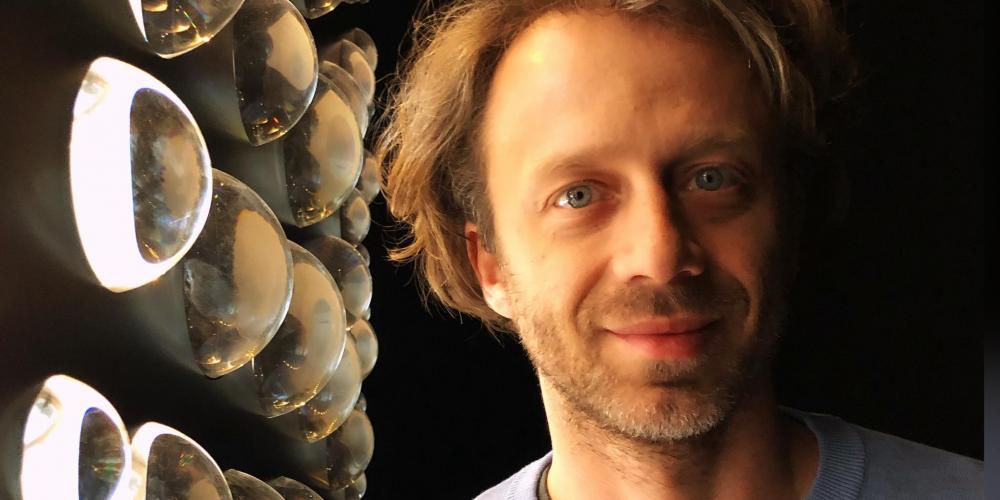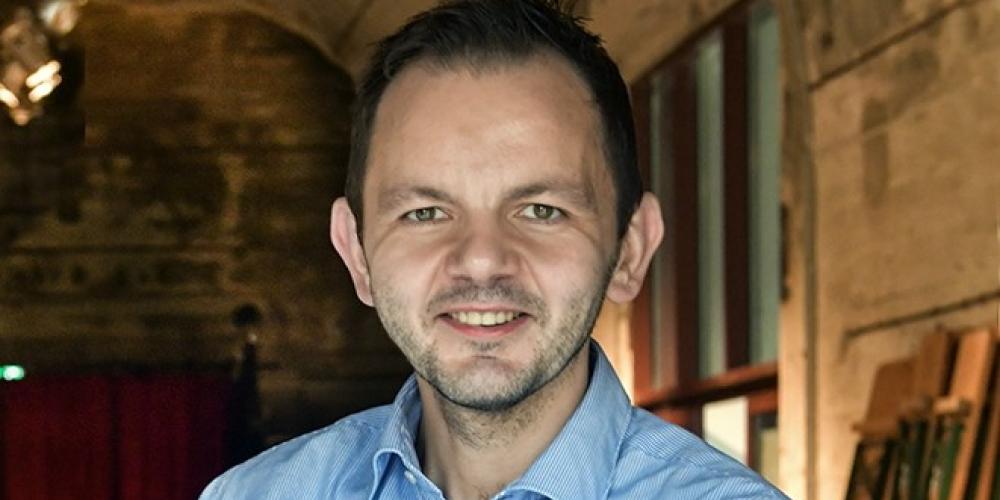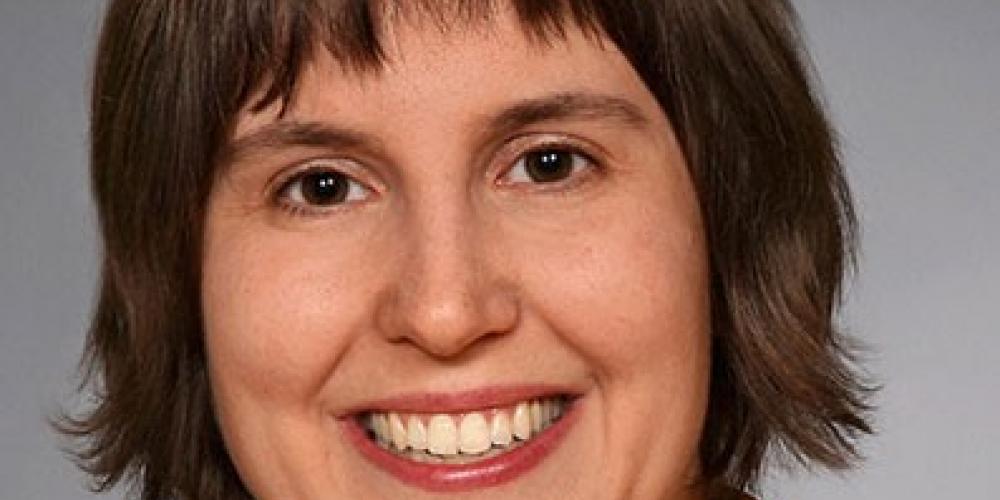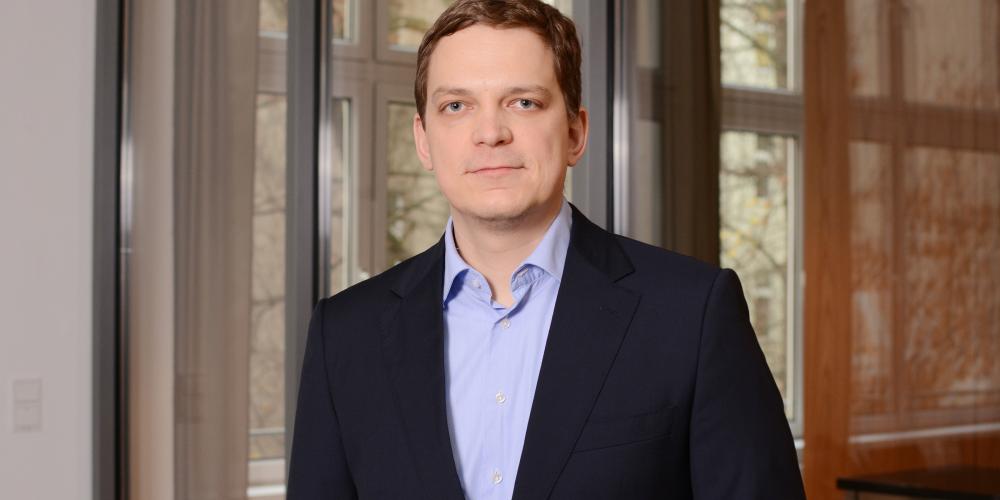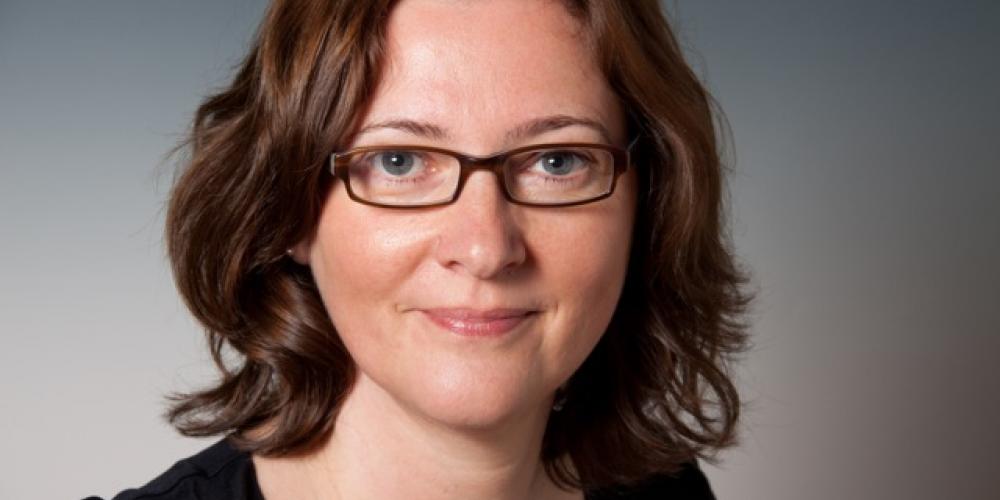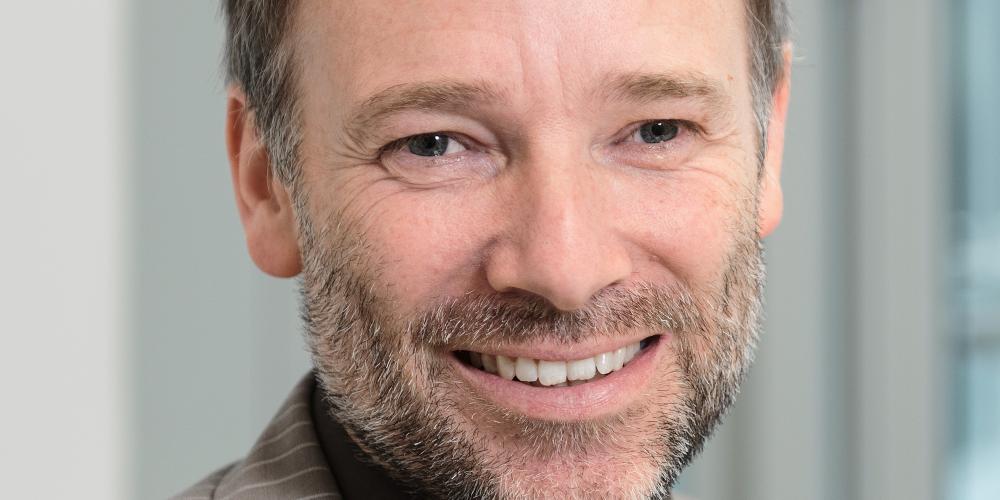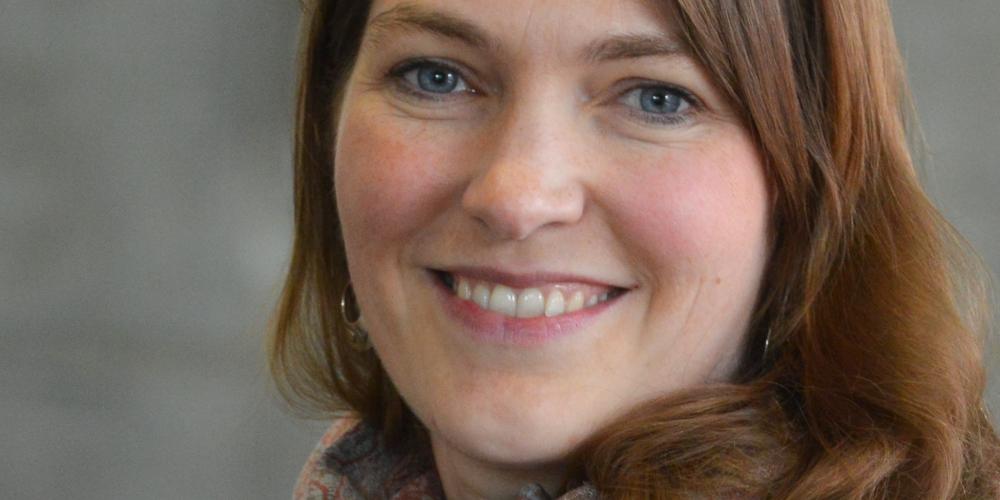Education
Dr. Lilge, founder of gamelab.berlin, is working on the conception and implementation of digital and analog learning and experience offerings that use playful elements to generate continuous motivation throughout the entire period of use. Examples of such offerings include serious games, i.e., serious games that pursue specific learning objectives; gamified apps, i.e., applications that contain playful aspects; digital and analog exhibits; and immersive room design that immerses the user in a captivating experience. The goal is that people, through these interactive and engaging learning methods, will be motivated to expand their knowledge and actively engage with the content. In addition to his work as a researcher on the cultural technique of games, he advises companies and organizations on the topics of gamification and human focused design.
- Conception and testing of digital prototypes
- Consulting on interdisciplinary innovation projects
Twiddle - mobile game for 8 research museums of the Leibniz Association
Polarstern 360° - Virtual and Augmented Reality Exhibition at the Bremerhaven Maritime Museum
Snapture - mobile game for teaching image literacy for the Bode-Museum Berlin
Mein Objekt - playful knowledge transfer for e.g. Humboldt-Forum Berlin, Badisches Landesmuseum, a.o.
Gamification Expert Level 3 of the Engagement Alliance and
certified Octalysis Framework user
Prof. Staab's research combines topics of labor, social structure analysis, sociology of technology and political economy in a contemporary analytical perspective. Currently, Prof. Staab is particularly involved with questions of the political shaping of digital capitalism, the connection between digitalization and sustainability, as well as the role of critical infrastructures for the future viability of modern societies. The professor pursues a theory-oriented, present-diagnostic sociology in the context of social change, conflict, and inequality, which always seeks dialogue with the public.
- consulting,
- drafting of studies and
- policy papers as well as presentations
on important current topics in the areas of society, politics and economics, in particular digitalization and sustainability as well as work. The focus is on future developments of society as well as political and economic options for action.
- Organizing and conducting several conferences with a large political foundation
- Writing a policy study for a large labor union
- Advising members of parliament, ministries as well as the European Commission
Prof. Miyazaki, is a critical humanities scholar working on the theory, critique, and history of digital media, digitization, and computation as productive practice. He uses numerous social-critical, philosophical and technology-related theories of the last century (historical materialism, critical theory, poststructuralism, science and technology studies, media theory, media archaeology, postcolonialism, design studies). Currently, Prof. Miyazaki is working on the theory and history of alternative, non-profit, sustainable production practices that could be realized through other types of digitization. The focus is not only on social change, but also on technical-media change, which has no future without critical knowledge of technology.
Consulting through studies, lectures and talks on current topics in the field of information technologies, algorithms, society, culture and politics with a focus on digitalization, sustainability and criticism. The focus is on the deployment of alternative lifestyles and forms of life in the future, as well as socio-political opportunities to take action.
- Establishment of the Critical Media Lab at the Institute Experimental Design and Media Cultures at the School of Art and Design FHNW (Claudia Mareis).
- Associated Investigator in the Cluster of Excellence "Matters of Activity".
- Publication: "Counter-Dancing Digitality. On Commoning and Computation".
Professor Zender and his team at the Chair of "Didactics of Computer Science | Informatics and Society" work on a wide range of topics related to educational technologies, the teaching methodology of computer science and socio-technical systems. He focuses on the use of immersive technologies such as virtual and augmented reality in teaching and learning settings. His activities concentrate on the design and development of such VR and AR systems. In his projects, Professor Zender always collaborates with a wide network of interdisciplinary partners from the fields of computer science, media didactics, media pedagogy and various other.
In addition, Professor Zender is the deputy speaker of the specialist group on educational technologies of the German Informatics Society (GI) and initiator of the GI working group on VR/AR-Learning.
- Consulting on the use of educational technologies in concrete teaching and learning settings
- Conception and development of learning-effective applications with virtual and augmented reality (VR/AR)
- Conducting lectures and training courses on the topic of "Teaching and Learning with VR/AR"
- Cooperation with companies and research institutions from vocational education and training: conception and development of teaching/learning systems, realisation of transfer events
- Cooperation with training institutions from the automotive industry in particular: development of VR simulations for training purposes
- Cooperation with companies from the IT sector (e.g. providers of learning systems): design and development of teaching/learning systems
- Cooperation with scientific institutions (universities, private research institutions, etc.): implementation of research projects, scientific events and transfer activities as well as community work
Teaching and Learning with Virtual and Augmented Reality
State of Berllin
Berlin Senate Administration
Public authorities and associations
PD Dr. Mohsen Makki and his research group Soil Geography and Geomorphology have been dealing with soil-forming processes and properties of soils in urban areas for about two decades.
The scope of work includes all types of anthropogenically influenced sites (e.g. military sites, airports) that have been transformed by humans in the course of urban development, and natural soils. A main focus has been and will be the integration of the results of the soil investigations into soil protection concepts and landscape design measures with regard to climate change and other urban and landscape planning development concepts.
The working group continues to participate in geoarchaeological projects and supports non-university partners in the development of systems as well as substrates for vertical farming and green roofs. Regional focal points of research are the metropolitan region Berlin/Brandenburg, Italy, West and Central Asia.
- Soil-sedimentological and geomorphological expertise
- Soil-scientific site evaluation of urban and rural soils according to BBodSchG and BBodSchV
- Geoarchaeological site evaluation
- Creation of soil experience paths
- Creation of soil substrates for vertical farming and indoor farming
- Grain size analysis by means of Beckman-COULTER and Köhn apparatus
- Standard soil analyses (humus content, pH-value, lime content, electrical conductivity)
- Temperature-dependent determination of carbon content by loss on ignition
- Measurement of nutrient and heavy metal contents in soils and sediments according to DIN and VDLUFA, measurement by ICP-OES
- Soil science investigations in the Berlin/Brandenburg metropolitan region (Tempelhof Airport, Tegel Airport, Parks Range, Teufelsberg, etc.)
- Development of a pedological mapping guide for the state of Berlin
- Preparation of pedological reports for the Berlin Senate Administration
- Site analyses for public authorities and associations
City of Munich
vhw Bundesverband für Wohnen und Stadtentwicklung (Federal Association for Housing and Urban Development)
FGW - Forschungsinstitut für die gesellschaftliche Weiterentwicklung (North Rhine-Westphalia)
CBRE
Prof. Nuissl is concerned with the development of cities and regions. He investigates the growth of cities and settlement areas, dynamics on the housing market (esp. displacement processes) as well as the development of city districts and neighborhoods. In addition, one focus of his work is the analysis of municipal planning and policy processes. As a member of the Integrative Research Institute on Transformations of Human-Environment Systems (IRI THESys), Prof. Nuissl has excellent interdisciplinary connections in his field of research.
- Contract research (qualitative and quantitative social science methods)
- Expert reports
-
City of Munich: Case Study on Displacement Processes in the Housing Market and Derivation of Urban Policy Implications (https://www.muenchen.de/rathaus/Stadtverwaltung/Referat-fuer-Stadtplanu…)
-
vhw Bundesverband für Wohnen und Stadtentwicklung (Federal Association for Housing and Urban Development): Study on the change of local political cultures in a polarized society
-
FGW - Forschungsinstitut für die gesellschaftliche Weiterentwicklung (North Rhine-Westphalia): Study on the integration of migrants in the neighborhood (https://www.fgw-nrw.de/forschungsergebnisse/forschungsergebnisse/projek…)
-
CBRE: Data collection on student housing in Germany
-
IRI THESys - Integrative Research Institute on Transformations of Human-Environment Systems at the Humboldt University of Berlin
In the course of her research at the Humboldt University, Dr. Neubert deals with land use, the different models, possibilities, challenges and questions that go along with it. She and her team can be described as Land Use Specialists.
Dr. Neubert leads research projects and teaches in the areas of: Rural and agricultural development, water resources management, climate change adaptation. Development and implementation of the participatory impact assessment method: MAPP.
- Trainings and consultations on topics such as: "International Cooperation for Sustainable Development".
Humboldt Forum
Charité
Dr. Stein has a lot of experience with the conception and development of serious games and gamification for knowledge transfer, especially for museums, cultural institutions and in medicine. As a Germanist and computer scientist, he masters both the conceptual and cultural perspective as well as the technical of implementation. He has led over 15 software development projects in the areas of App, VR, AR and Browser Apps. When it comes to imparting knowledge and gaining experiences, games are the medium of our time, according to Dr. Stein. As a researcher and game developer, he is particularly interested in exciting mediation challenges.
http://humboldt.gmbh/forschungskooperation
Dr. Stein develops concepts for knowledge transfer games, Serious Games and Gamification. He is also involved in software development, implementation and testing. He also offers workshops on VR and games as a cultural technique.
The following software projects were all developed iteratively and agilely in an academic context according to Dr. Stein's conception. In addition, they were tested and published under his leadership and represent a significant part of his publications.
Mein Objekt
- Mein Objekt
is an innovative museum game that enables visitors to engage in dialogue with objects, seeking to transform digital habits into cultural interest. Using machine learning and adaptive language, an adaptation of the application to the individual visitor is ensured, resulting in a personalized, interest-driven museum tour. The project was developed for the Humboldt Forum as part of museum4punkt0 and will be used there for the first time when it opens. It is developed in React Native and is used BYOD for Android and iOS.
Diary
-
Diary is a tool for exploring scientific interdisciplinary work and has been developed for the Experimantalzone of the Cluster of Excellence Image Knowledge Gestaltung to better understand interdisciplinary collaboration. It is developed for macOS in Objective-C and can record, visualize and synchronize activities such as software usage, keystrokes, activity cycles and more with a server. It is used to explore digital working practices and habits across disciplines and also benefits users in terms of self-reflection on their working practices.
iWrite
- iWrite is a gamified tool to improve scientific writing processes. It is developed for macOS in Objective-C and allows the user to organize writing processes into focused sessions, eliminate distractions, visualize progress, and schedule writing sessions. It also unlocks step-by-step tips and videos from writing experts.
BWG VR
- BWG VR is an interactive, stereoscopic 360° experience for virtual reality headsets that shows the Cluster of Excellence Image Knowledge Gestaltung in its various spaces and presents actors of the cluster exemplarily in their working environments. The connection between space, objects and people is presented and the complex configuration of different actors is made tangible.
Singleton
- Singleton is a game for integrating personal goals into everyday life and individual development based on self-imposed priorities based on theoretical principles from psychology and game studies. It is developed in Unity Mobile for Android and iOS and allows entertaining and goal-oriented microinterventions in a level system based on individually generated card decks. It is based on the Big 5 character traits and dynamically assigns specific card packs individually to the user.
ID+Lab
- ID+Lab is the prototypical front-end of a publication platform designed to publish interdisciplinary research as a network and to show connections that otherwise remain hidden. It is developed as a web application and is based on Semantic Web technologies with GraphDB in the background. Publications are modeled here as a semantic network and visualized dynamically and intuitively. A DFG research proposal to deepen the project is currently under review.
Reading Revisited
- Reading Revisited is a VR application that tests reading in virtual reality and dynamically integrates various texts into moving landscapes. It explores the question of what influence reading environments have on comprehension and memorization and whether text can be thought of as a combination of environment and reading. Texts from the cooperating publisher Merve Verlag can be read and experienced in VR and can be received in a specially developed environment.
Bee Virtual
- Bee Virtual is a collaborative VR application in which two subjects control virtual bees by gaze direction and steer them through a virtual space. It was developed in Unity 3D for Oculus Rift. This is modeled on the physical space of the Central Laboratory Room of the Cluster of Excellence Image Knowledge Gestaltung. In an experimental setting, it was investigated how objects are remembered in VR, how virtual spaces can be transferred to physical ones, and to what extent communication among the test subjects influences the remembering of environmental properties.
PlosOne Metadata Extractor
- PlosOne Metadata Extractor is a browser plugin that extracts metadata in lists of PlosOne publications including abstracts, making them processable and analyzable for text mining.
Decide & Survive
- Decide & Survive is a game that makes it possible to experience decision-making processes in foreign policy contexts and aims to investigate the influence of user interfaces on player decisions by using both aggressive and neutral interfaces and sounds. It is developed in Java with JavaFX and runs server-side via PHP.
OncoLogg
- OncoLogg is a game designed for multiple myeloma patients and their families to educate them about therapies, risks and side effects. It lets the player experience different therapy cycles and refocuses from healing to achieving life goals. The game was developed together with the Charité in Java for Android.
iglos
- iglos, or the Intelligent Glossary, is a semantic network design application intended to identify and facilitate terminology and comprehension problems in interdisciplinary academic projects. It is browser-based developed with web technology and RDF/OWL compatible.
- Workschops
Forum Junge Spitzenforscher 2013: Project Big Data for Knowledge Networks
workshop on the analysis of Twitter data for Stiftung Wissenschaft und Politik (SWP)
Professor Jäschke and his team develop and optimize methods in the areas of Big Data and Machine Learning, especially in the aplication fields of Natural Language Processing, Social Bookmarking and Recommendation Systems. This includes the Collection (e.g. through focussed Crawling), Compilation, Annotation (e.g. by means of Crowdsourcing) and Curation of suitable records (data sets).
Further, it includes the Adaptation and Improvement of appropriate Algorythms (e.g. Named Entity Recognition, Classification, Clustering, Information Extraction, etc.) culminating in the development of web-based analysis platforms.
- Hadoop-Cluster
- GPU calculator
- diverse datasets
Professor Klotzsch research is focussed on the field of materials science for optiminzing adaptive immuntherapies. Furthermore he is engaged in the immun systems mechanbiology.
He and his team aim to bridge the gap between structural and cell biology, and in particular to unravel the mechanistic aspects of how cells sense and respond to their environment. This includes how cells use forces to study interactions with other molecules such as receptor-ligand interactions to switch biochemical functions, such as T-cell activation, migration, or their interaction with the extracellular matrix. We are also investigating how these findings can be used for biomedical applications.
We use state-of-the-art single molecule microscopy techniques such as super-resolution microscopy, AFM and optical tweezers to gain insights into general aspects of mechanobiology, membrane biophysics, neurobiology and immunology.
- Super-Resolution Mikroscopy
- transcriptomics
- mechanical tests with biological materials
- T-cells activation
- characterization of lymphocytes
- comparative studies of products for CAR T cell therapy
The World Economic Forum (WEF)
Berlin SME
Chemspeed Technologies Ltd
Professor Bojdys research focuses on the design of covalent organic polymers with applications as organic transistor devices and on light-reactive polymers (e.g., Nat. Commun. 2019. DOI: 10.1038/s41467-019-11264-z). He and his team cooperate with established battery and coating companies and with a Berlin SME.
Since 2018, Professor Bojdys has been a member of the "Young Scientists" at the World Economic Forum (WEF) and further serves on their advisory board since 2019.
- Gas sorption analysis: Quantachrome Instruments Autosorb IQ (probegases: N2, Ar).
- Robotic synthesis & formulation: ChemSpeed ASW 2000
- X-ray diffractometers (Cu and Mo radiation, transmittance, Bragg-Brentano and reflectonomy configuration).
- groupwork focusing on flexible batteries with a Berlin SME
- cooperation on robot-assisted synthesis with Chemspeed Technologies Ltd.
- collaboration with The World Economic Forum (WEF)
- council member at "Young Scientists"
- WO/2020/216408 - RECHARGEABLE LITHIUM-ION BATTERY ANODE, AND METHOD FOR PRODUCING A RECHARGEABLE LITHIUM-ION BATTERY ANODE
- WO/2016/027042 - TWO-DIMENSIONAL CARBON NITRIDE MATERIAL AND METHOD OF PREPARATION
- ERC Proof of Concept Grant (Ultra-high energy storage Li-anode materials - LiAnMAT)
- ERC Starting Grant (Beyond Graphene Materials - BEGMAT)
The research of Prof. Greifeneder and her team at the Chair of Information Behavior focuses on user research. She is particularly concerned with people’s search and user behavior when dealing with information or metadata both while using a traditional library as well as in fields such as digital libraries or research data. Key aspects of her work include the use of online survey methods and natural habitat research as well as securing the validity of data in a laboratory setting and in natural environments. Additionally, users’ private information sharing behavior and context research are central issues in Prof. Greifeneder’s research.
Prof. Greifeneder and her team employ qualitative and quantitative research methods of information science with a focus on user research. This includes survey design and implementation, both online and in the form of natural habitat research, interviews, case studies, experiments, scientific observation, focus groups and eyetracking. The Chair of Information Behavior boasts a modern research laboratory, the iLab:
- The iLab consists of two functionally differentiated rooms, connected with a door made of spyglass, that contain mobile desks (height can be adjusted electronically), swivel chairs, mobile partition walls, magnetic glass boards and a facilitator’s toolbox
- Technical equipment: beamer, cameras, microphones, mobile sound recorders, tablets, notebooks, smart watches and eye-trackers
Accor Hotels Germany
SHS VIVEON realisation of training for interviewers
International executive headhunting company: development of customised personality test
Prof. Ziegler's expertise and that of his team lies in the field of psychological diagnostics and deals with all topics of personnel diagnostics in the HR life cycle. They focus on personality, intelligence and situational awareness. Ziegler and his team develop solutions to measure these in relation to requirements and to use them for performance or learning prediction. Therefore they use the full range of qualitative (e.g. interviews) and quantitative methods (e.g. tests, questionnaires, machine learning).
Prof. Ziegler has already carried out several successful projects with well-known companies in this area, involving the creation of competency models, employee surveys, annual appraisals or job aptitude diagnostics. Prof. Ziegler's working group also trains individuals or teams on topics of personnel diagnostics (e.g. assessment centers or interviews). In addition, Prof. Ziegler develops customized diagnostic processes or evaluates them.
- PC lab with 10 workstations and various performance and personality tests
- Online surveys
- Data analysis
- Consulting
- Trainings - wide range of topics
-
Competence model development - Prof. Ziegler and his team have developed competence models for different professions for various clients and made them measurable
-
Accor Hotellerie Deutschland GmbH: Development of competence models
-
SHS VIVEON AG: Implementation of interviewer trainings
-
International headhunting company for executives: Development of a customized personality test
-
Evaluation and optimization - In these projects Prof. Ziegler looks at existing personnel processes, evaluates their quality from a psychological point of view and develops optimizations.
Professional School of Education (PSE), Interdisciplinary Centre for Educational Research (Interdisziplinäres Zentrum für Bildungsforschung, IZBF), Humboldt-ProMINT-Kolleg
The research-based didactics of biology – the science of teaching and learning of biological contents and methods – is essential for the education and training of biology teacher students. One focus area of Prof. Upmeier zu Belzen’s work is the modelling and measuring of competencies in scientific methods for acquiring and consolidating knowledge of pupils, students and teachers. Her team applies qualitative and quantitative methods of empirical social research. Prof. Upmeier zu Belzen conducts experimental intervention studies to test the effectiveness of support frameworks regarding diagnostic capabilities and the ability to convey knowledge of (prospective) teachers as well as the effectiveness of different educational activities offered to pupils. The transfer of the results into academic practice is supported by relevant publications as well as by trainings for teachers and school administrations.
- Substantial collection of didactical media for teaching and learning biology of the Department of Biology
- Hard- and software for video studies
- Eye tracker
- Assessment of teachers’ (school and university) competencies to acquire knowledge
- Professional School of Education (PSE): as a central institute the PSE is a cross-faculty liaison of education, school and teaching research. The PSE is both a teaching and research unit. Its main focus lies on the education of teachers under the conditions of heterogeneity, and on issues relating to the promotion of the gifted and talented.
- Interdisciplinary Centre for Educational Research (Interdisziplinäres Zentrum für Bildungsforschung, IZBF): the centre’s main function is to examine questions of research on education, theoretically and empirically, and to present and transfer the results to improve educational systems, processes and activities in Germany as well as internationally.
- Humboldt-ProMINT-Kolleg: structural unit comprising the so-called MINT subjects (mathematics, informatics, science and technology, comparable to STEM) in all German types of schools and the related transitions, established to develop new techniques of teaching and learning. The unit is sponsored by Deutsche Telekom Stiftung and collaborates with PSE and IZBF. Participating teachers and students complete an internship in companies or institutions in Adlershof in order to learn about value added chains from basic research to high-tech production.
- Humboldt Bayer Mobil: joint project with the Bayer Science & Education Foundation to promote academic education and to ignite curiosity and enthusiasm for science and research in pupils in grades 5 through 8. This project provides insights in research practices at universities and the private sector, which also supports career prospects in the areas of science and technology.
Prof. Pinkwart’s research group investigates a range of topics including adaptive educational technologies, computer supported collaborative learning, computer science education methods (especially in the fields of programming and modeling), social media and cooperative systems, and socio-technical systems. In addition, they develop multimodal human-computer interaction methods using interactive surfaces, mobile devices and 3D technologies. Prof. Pinkwart is a well-known member of numerous national and international committees and projects in basic and applied research. His team can offer specialised expertise in computer-assisted education and training, especially in the field of mobile and ubiquitous learning and teaching scenarios, computer-based group learning methods, and adaptive mechanisms in e-learning. In this context, Prof. Pinkwart and his team realise numerous research projects and co-operate with several educational institutions and companies. Concerning socio-technical systems, Prof. Pinkwart’s team conducts research on issues of design, implementation and evaluation of group-oriented software applications (e.g. online communities).
- interactive table (multi-touch)
- electronic boards
- tablets (20x)
- co-operation with IT companies: consulting for didactical concepts applied to online courses in the fields of media production and e-learning
- co-operation with e-learning companies: formation of study groups in large online courses
- co-operation with automotive supplier: designing human-machine interfaces for production machines
- co-operation with automotive manufacturer: multimodal control concepts for car infotainment systems
alta4
Geoinformatics AG
NGOs, authorities and global tech- and logistics companies
Prof. Hostert’s explores cutting-edge satellite data analysis. His main focus lies on questions regarding the global change, particularly large-scale mapping in agrarian- and forestry systems and near-nature ecological systems worldwide. He analyses the change of the earth’s surface through different methods, for example with machine learning, big data, time series analyses, hyperspectral and multisensor approaches, as well as multiscale analyses. Regional expertise of the team covers Germany, the mediterranean areas and South America, as well as Central Asia.
- satellite data analysis
- AI in remote sensing
- large-scale remote sensing analysis with big data approaches (particularly Sentinel-2, Landsat), funded through projects of the BMWi, BMBF, BMEL, as well as the EU
- scientific monitoring of satellite missions (Landsat Science Team, EnMAP ScientificAdvisory Group)
- satellite based mapping and land use analysis for NGOs, authorities and global tech- and logistics companies
Prof. Hoppe’s research is focused on Occupational Health Psychology (OHP) especially on the analysis of work activities to maintain employee health and performance as well as to provide learning and development opportunities. OHP integrates occupational and health psychology with occupational medicine and traditional labor safety, which is insufficient for today’s flexible employment situation. Prof. Hoppe also examines the psychosocial characteristics of a specific workplace, e.g. work requirements or the level of influence on and control over tasks as well as the social working environment. She also studies the effects of these characteristics on employee health and his/her well-being. She investigates how psychosocial work characteristics influence an employee’s motivating factors like job satisfaction and commitment. Particular attention is paid to the situation of migrant and low-skilled workers and the analysis of the impact their workplaces and work environments may have on their health and well-being. Moreover, Prof. Hoppe studies multi-ethnic and -lingual workforces and the effects of diversity on employee health.
- risk assessment methods for workplace conditions
- employee surveys regarding the promotion of health at workplace
- interventions to promote health at work
- postal operators, logistics companies, professional care providers, manufacturing companies: execution of employee surveys to gather data on psychosocial strain and resources in the workplace and to analyse effects of stress, job satisfaction and work performance
- public institutions (e.g. universities, federal ministries), consulting companies, self-employed persons: development of health-related interventions and training sessions via mobile devices (e.g. smartphones, tablets) to facilitate recovery strategies and self-management
- Michel, A. & Hoppe, A. (2022). Handbuch Gesundheitsförderung bei der Arbeit: Interventionen für Individuen, Teams und Organisationen (1. Aufl. 2022 Aufl.). Berlin: Springer.
The Logic in Computer Science group focuses on theoretical computer science, with emphasis on logic, database theory, and complexity theory. Particular attention is paid to the relations between these areas. For example, logics serve as a basis for database query languages and specification languages used for automatic verification, and many aspects of complex systems can be modeled by logical structures. Thus, properties of complex systems can be specified by logical formulas. The overall aim of our group is to gain better understanding of the complexity inherent in a problem or a system. Here, we are interested in various measures of complexity, including the computational complexity ("How difficult is it to algorithmically solve the problem?") and the descriptive complexity ("How difficult is it to describe the problem in a suitable formalism?"). Particular attention is paid to the connection between logical description of problems and efficient algorithmic solutions.
